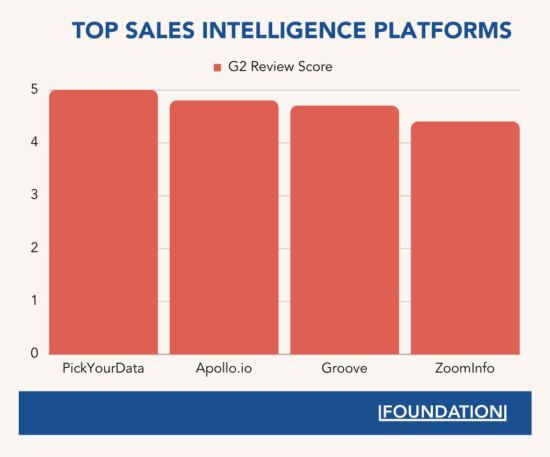
Introduction
In today’s hyper-competitive business landscape, staying ahead of the competition and maximizing revenue requires access to accurate, up-to-date information about potential customers and market trends. This is where sales intelligence software comes into play. Sales intelligence software helps sales teams gather, analyze, and leverage data to make informed decisions, target the right prospects, and close deals more effectively.
As we step into 2023, the sales intelligence software market has evolved significantly, offering a plethora of options for businesses of all sizes and industries. Choosing the right sales intelligence software can be a daunting task, but with the right guidance, you can make an informed decision that aligns with your business objectives. This comprehensive guide will walk you through the essential factors to consider when selecting sales intelligence software in 2023.
- Define Your Goals and Needs
Before you begin evaluating sales intelligence software options, it’s crucial to understand your specific goals and needs. What are your sales objectives? Do you need better lead generation, improved lead scoring, or enhanced customer segmentation? Clarifying your requirements will help you identify the software that aligns with your business objectives.
- Data Quality and Coverage
Sales intelligence is only as good as the data it provides. Ensure the software you choose offers high-quality and comprehensive data. Check if it provides information on a wide range of industries and regions. Data accuracy is critical for effective lead generation, targeting, and personalization.
- Integration Capabilities
Your sales intelligence software should seamlessly integrate with your existing CRM (Customer Relationship Management) system and other tools your sales team uses. This integration streamlines workflows, minimizes data entry, and enhances productivity. Check for compatibility with popular CRM platforms like Salesforce, HubSpot, and Microsoft Dynamics.
- User-Friendly Interface
User adoption is key to the success of any software implementation. Opt for a solution with an intuitive and user-friendly interface. Sales teams should be able to navigate the software easily, access relevant data quickly, and extract actionable insights without extensive training.
- Analytics and Reporting
The ability to analyze data and generate insightful reports is a core feature of sales intelligence software. Look for a solution that offers robust analytics and reporting capabilities. Customizable dashboards, real-time insights, and the ability to track key performance indicators (KPIs) are all valuable features to consider.
- Automation and AI-Powered Features
In 2023, AI-powered sales intelligence is becoming increasingly prevalent. Look for software that leverages artificial intelligence and machine learning to automate repetitive tasks, such as lead scoring, email outreach, and sales forecasting. Automation can help your sales team focus on high-value activities.
- Mobile Accessibility
In a world where remote work and mobility are prevalent, having access to sales intelligence data on mobile devices is essential. Ensure that the software offers a mobile app or responsive web design for on-the-go access to crucial information.
- Scalability
Your business is likely to grow, so it’s essential to choose a sales intelligence solution that can scale with your needs. Evaluate the software’s scalability to accommodate an expanding customer base, increased data volume, and additional users.
- Data Security and Compliance
Protecting sensitive customer data is paramount. Verify that the sales intelligence software complies with industry regulations and offers robust security features. This includes data encryption, user authentication, and audit trails.
- Customer Support and Training
A responsive and knowledgeable customer support team is invaluable when you encounter issues or need assistance. Additionally, look for a provider that offers comprehensive training resources to ensure your team can make the most of the software.
Conclusion
Selecting the right sales intelligence software in 2023 is a strategic decision that can significantly impact your sales performance. By carefully considering your goals, data quality, integration capabilities, user-friendliness, analytics, automation, mobile accessibility, scalability, security, and customer support, you can make an informed choice that empowers your sales team to excel in a highly competitive market. Stay ahead of the curve by investing in a sales intelligence solution that aligns with your business objectives and drives revenue growth.


